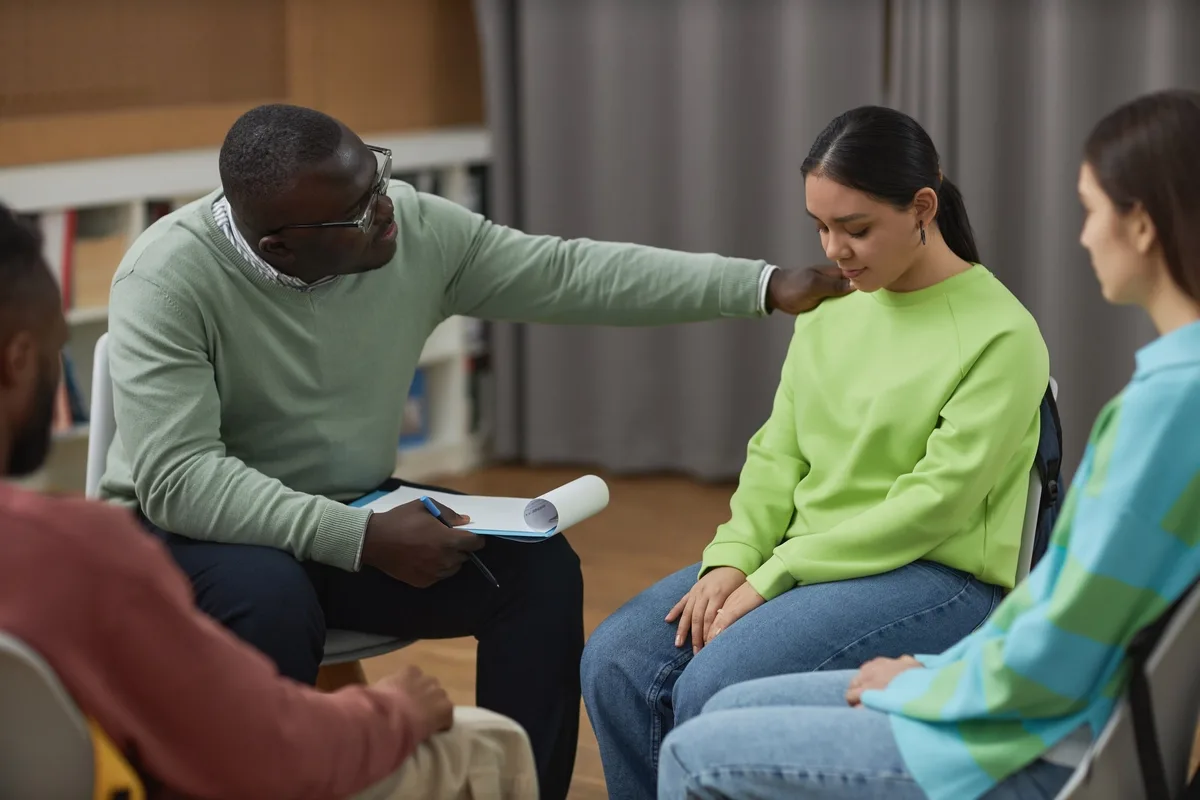24/7 Helpline:
(866) 899-111424/7 Helpline:
(866) 899-1114
Learn more about Bipolar Disorder Treatment centers in Levy County
Bipolar Disorder Treatment in Other Counties

Other Insurance Options

Ceridian

CareSource

Oxford

UMR

Anthem

CareFirst

Aetna

AllWell

State Farm

Lucent

United Health Care

Choice Care Network
Beacon

Optum

Molina Healthcare

Coventry Health Care

GEHA

Horizon Healthcare Service

Providence

Meritain

Mending Fences
Mending Fences is a private rehab located in Morriston, Florida. Mending Fences specializes in the t...

Transformations At Mending Fences
Transformations at Mending Fences is a residential mental health and substance abuse facility offeri...

Choice Recovery Counseling
Choice Recovery Counseling is an outpatient facility that offers treatment for adults with a Substan...

Northwest Human Service Center
Northwest Human Service Center is a public rehab located in Williston, North Dakota. Northwest Human...

ADAPT – Airport Road
ADAPT - Airport Road offers outpatient treatment for individuals with alcohol and/or substance addic...































Meridian Behavioral Health
Meridian Behavioral Health - Ishie Avenue offers outpatient treatment for individuals with alcohol a...

Intensive Treatment Modalities Group
Intensive Treatment Modalities Group hast provided mental health treatment and care for adult and ad...

Intensive Treatment Modalities Group
Intensive Treatment Modalities Group hast provided mental health treatment and care for adult and ad...

Basin Alcohol and Drug Services
Basin Alcohol and Drug Services is a private rehab located in Williston, North Dakota. Basin Alcohol...

Weishoff Alcohol and Drug
Located in Williston, North Dakota, Weishoff Alcohol and Drug is a drug and alcohol rehab for adults...

Montgomery Counseling Service
Montgomery Counseling Service is a private rehab located in Williston, North Dakota. Montgomery Coun...

ADAPT
ADAPT is a private rehab located in Williston, North Dakota. ADAPT specializes in the treatment of a...

Family Recovery Home Quantum Lachoer Center for Change
Family Recovery Home Quantum Lachoer Center for Change is a private rehab located in Williston, Nort...

AA – Alcoholics Anonymous – 6th Avenue East
AA – Alcoholics Anonymous – 6th Avenue East is a non-profit rehab located in Williston, North Dakota...










































































